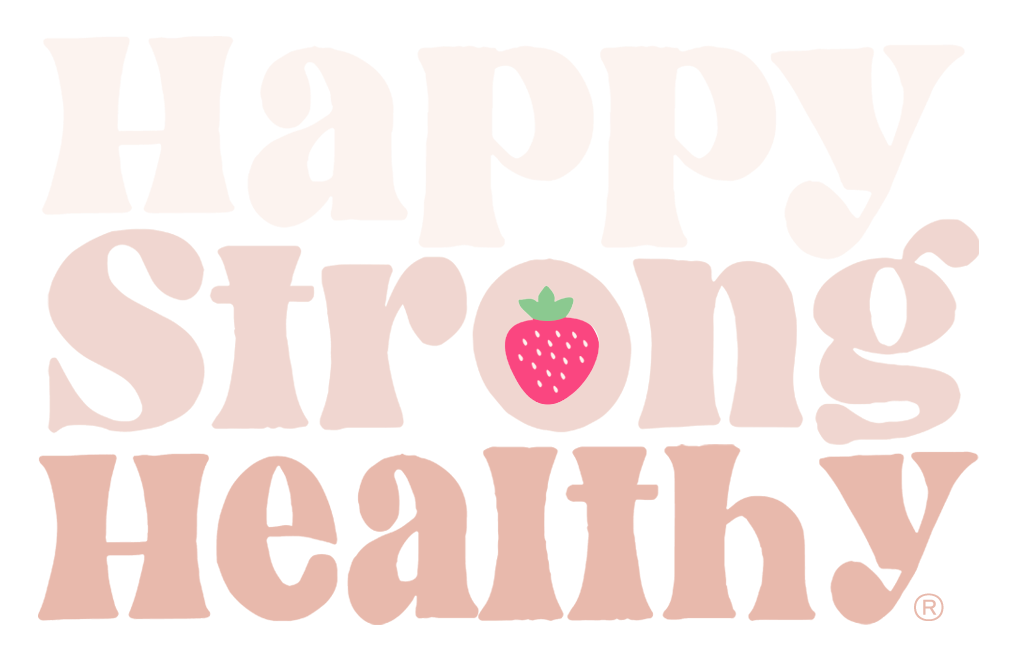The Magic of Mushroom Coffee: Is it Worth the Hype?
It seems that every time I log into tiktok or instagram that there are always so many videos or complications of mushroom coffee. So what exactly is it and is it truly good or bad for you? We have the science behind this trend!

Mushroom Coffee: mushroom powder, extracts blended into coffee.
So no, it's not just mushrooms thrown in your coffee. It does not have that mushroom taste either. But, is it worth the expensive price? Let’s take a deep dive into all the aspects of mushroom coffee including the history, nutrition facts, price, and possible benefits.
The history of mushroom coffee
So where in the heck did this phenomenon start? The addition of mushrooms has been in the wellness community for thousands of YEARS contrary to popular belief. It originally came from traditional Chinese and Ayurvedic medicine. In fact, mushrooms were used as a coffee replacement during World War II when coffee beans were out of stock. Four Sigmatic, was the first commercial brand for mushroom coffee back in 2012.
Nutrition facts
The dryness of the mushrooms blended into coffee grinds is what makes mushroom coffee NOT taste like just mushrooms. But, what types of mushrooms are used for this?
Some common types are the following: lion’s mane, reishi, and chaga. Lion’s mane has been getting a reputation in the wellness community for years for assisting in “de stressing” our bodies. However, there is no clinical evidence-based science to support this theory yet. So maybe take this with a grain of salt.
In comparison to regular coffee, there is evidence of less caffeine in mushroom coffee. A regular cup of coffee can contain roughly 90-120 mg of caffeine. Mushroom coffee contains roughly 50-60 mg of caffeine per cup. This is potentially why many think it can assist in less stress and anxiety than your average cup of joe. So if you are drinking coffee for the caffeine to make it through your morning, maybe consider sticking to your regular coffee. In fact, there is slightly more fiber in mushroom coffee than regular coffee which can help aid in healthy bowel movements and bulk.
Mushrooms do have some additional antioxidant properties that can add to some potential immune support. For example, mushrooms contain the following: polyphenols, carotenoids, vitamins, and minerals. These have all been connected to potential benefits of reducing inflammation, increasing eye health, and increasing anti-aging. However, with the lack of research specifically with mushroom coffee these have not all been proven at this time.
There have been some upcoming studies suggesting one potential side effect concerning those with digestive or renal issues. Mushrooms are high in oxalates which can affect the progression or start of kidney stones for those who are sensitive. It is always important to consult with a physician or dietitian before trying mushroom coffee if this sounds like you.
Price
When considering trying mushroom coffee, one factor to consider is price! Majority of mushroom coffee brands offer 12 oz bags for almost double the price compared to regular coffee. So unless you are attempting for the “potential” benefits and less caffeine, consider if this is in your coffee budget.
Overall: Consider ALL Factors when deciding to follow a coffee trend!

Written by Emma Sommers
Hey, I'm Emma!
I'm currently a Senior at Purdue University studying Nutrition and Dietetics. I love everything about nutrition and have a passion towards helping people learn to love food and all the science behind it! Learn more about the HSH offerings here.
Discover 9 must-have cookbooks for your kitchen, from quick one-pan meals to family-friendly recipes. Perfect for busy cooks, these cookbooks offer simple, delicious solutions for everyday cooking, meal prep, and entertaining.
Expert guide to protein supplements: Learn when to take them, how much you need, and which type is best for your fitness goals. Discover the differences between whey and casein, optimal timing, and quality considerations from registered dietitians.
Discover the science-backed relationship between diet and sleep quality. Learn how macronutrients, micronutrients, and meal timing impact your sleep, plus practical tips for better rest through nutrition. Expert insights from registered dietitians.
Transform ordinary carrots into a showstopping Thanksgiving side dish with this easy brown sugar glazed carrots recipe. Learn how to make this kid-friendly, nutrient-rich vegetable dish that combines sweetness with savory herbs.
Discover 7 creative and protein-packed cottage cheese recipes from a registered dietitian. Learn how to make cookie dough, lasagna, queso, and more using this versatile ingredient. Elevate your meals with these easy, nutritious cottage cheese ideas.
Discover why cortisol isn't the enemy and learn 5 effective, natural strategies to manage stress without supplements. Our registered dietitian's guide explores sleep, mindful eating, balanced movement, stress management tactics, and alcohol alternatives for holistic well-being.
Elevate your at-home date night with our easy, nutrient-packed charcuterie board for two. Learn how to assemble a romantic spread using Trader Joe's ingredients, balancing protein, fats, carbs, and fiber. Perfect for couples looking for a fun, flavorful, and intimate dining experience.
Discover the truth about BCAA supplements from a registered dietitian. Learn what BCAAs are, how they compare to other amino acids, and whether you should include them in your fitness routine. Get evidence-based answers to the most common BCAA questions and make informed decisions about your nutrition.
Discover a delicious and nutritious Caprese White Bean Salad recipe perfect for meal prep, quick dinners, or summer gatherings. Packed with protein, fiber, and healthy fats, this versatile dish can be served over pasta, romaine, or enjoyed on its own. Learn how to make this easy, flavorful salad in minutes!
Discover the truth about creatine supplements from a registered dietitian. Learn the differences between creatine monohydrate and micronized creatine, who can benefit from supplementation, and get answers to common questions. Explore the latest research on creatine's effects on muscle growth, brain health, and more.
Discover the truth about pizza's nutritional value from a registered dietitian. Learn how to enjoy pizza guilt-free, balance it with side salads, and compare frozen pizza options. Debunk diet culture myths and embrace intuitive eating with our expert insights.
Discover a quick and satisfying Air Fryer Brunch Toast recipe. Perfect for busy mornings or pre-travel meals, this delicious and nutritious toast combines sourdough, eggs, avocado, and more. Learn how to make this easy, filling breakfast that'll keep you energized for hours.
Discover the truth behind the mushroom coffee trend. Learn about its history, nutrition facts, potential benefits, and price. Is this wellness craze worth the hype? Find out in our comprehensive blog post
Elevate your morning routine with our delicious and easy-to-make breakfast taco recipe. This dietitian-approved dish features a flavorful combination of scrambled eggs, black beans, avocado, and zesty seasonings, all wrapped in warm tortillas. Perfect for busy mornings or weekend brunch, this recipe will become your new go-to breakfast favorite. Learn how to make this mouthwatering meal in just 25 minutes!
Learn about the popular diabetic weight loss drugs, GLP-1's and SGLT-2's, and how they work to help with weight loss and lowering A1C levels. Discover the potential side effects and considerations before starting these medications. Get informed with our comprehensive guide on diabetic weight loss drugs.
Discover the #morningglowmocktail, a delicious and sleep-enhancing drink featuring tart cherry juice, a natural source of melatonin. Learn how to make this easy mocktail and improve your sleep quality during #bettersleepmonth. #sponsored by Tart Cherry Industry. #ustartcherries
Elevate your spring and summer BBQ menu with this delicious and satisfying Prosciutto Pasta Salad recipe. Packed with roasted red peppers, parmesan cheese, fresh veggies, and a tangy dressing, this easy-to-make dish is perfect for any occasion. Learn how to create this crowd-pleasing pasta salad with our step-by-step guide.
Colostrum, the "liquid gold" supplement, is trending, but is it worth the hype? Learn about the benefits and limitations of bovine colostrum for adults based on current research. Discover the truth behind the marketing claims and make an informed decision about this popular wellness trend.
What’s something that fad diets have that you won’t find here? Well, to be honest, there are many things (LOL) restriction, strict rules, avoiding foods, etc. but the answer in this case is food additions! Nutrition Addition, let’s talk about it!
The sleepy girl mocktail has been making its rounds around TikTok, claiming to help you sleep easier and improve sleep quality. Let’s take a look at the ingredients and see if the talk measures up to the science!
Whether you are going for a run, lifting weights, or an athlete getting ready for a game or race, fueling your body properly is extremely important.
It seems like social media is always looking for ways to tear down or call specific foods bad for you. For the last few years, there have been so many negative articles about seed oils and how “toxic they are”. But are seed oils ACTUALLY bad for you? Let’s talk about it!
Metrics from activity on the app, Strava, expect that up to 80% of people make a resolution and abandon it before the end of January. What if instead of forcing yourself into a box of changes that may or may not be attainable and suitable for your lifestyle, you provided yourself space to grow, breathe, and find ways to better uplift and love yourself?
Many disordered eating behaviors have become so normalized that you might not even realize you are struggling, read on for some common normalized eating behaviors and why they are not normal at all.
As a busy college student, energy bites are a major staple food for me! They come together quickly, freeze well, and are VERY customizable. Packed with fiber and vitamin A, these energy bites are a tasty, no-bake, holiday treat for the whole family.
Step aside, Keto, because there is a new diet in town and it is even crazier than the last! Introducing: The Carnivore Diet
Metabolic Adaptation: maybe you’ve heard about it or read about it online. What is it? And why does it matter? Read on to learn more!
Whether you’re a college or professional football fan or if you just love a reason to tailgate and enjoy time with friends, these 5 tips may be helpful for you as you look to enjoy your time and continue to nourish your body!






































February is American Heart Month, and as a registered dietitian, I want to share my secret heart-healthy tip with you: consider adding Florida Orange Juice to your daily routine!